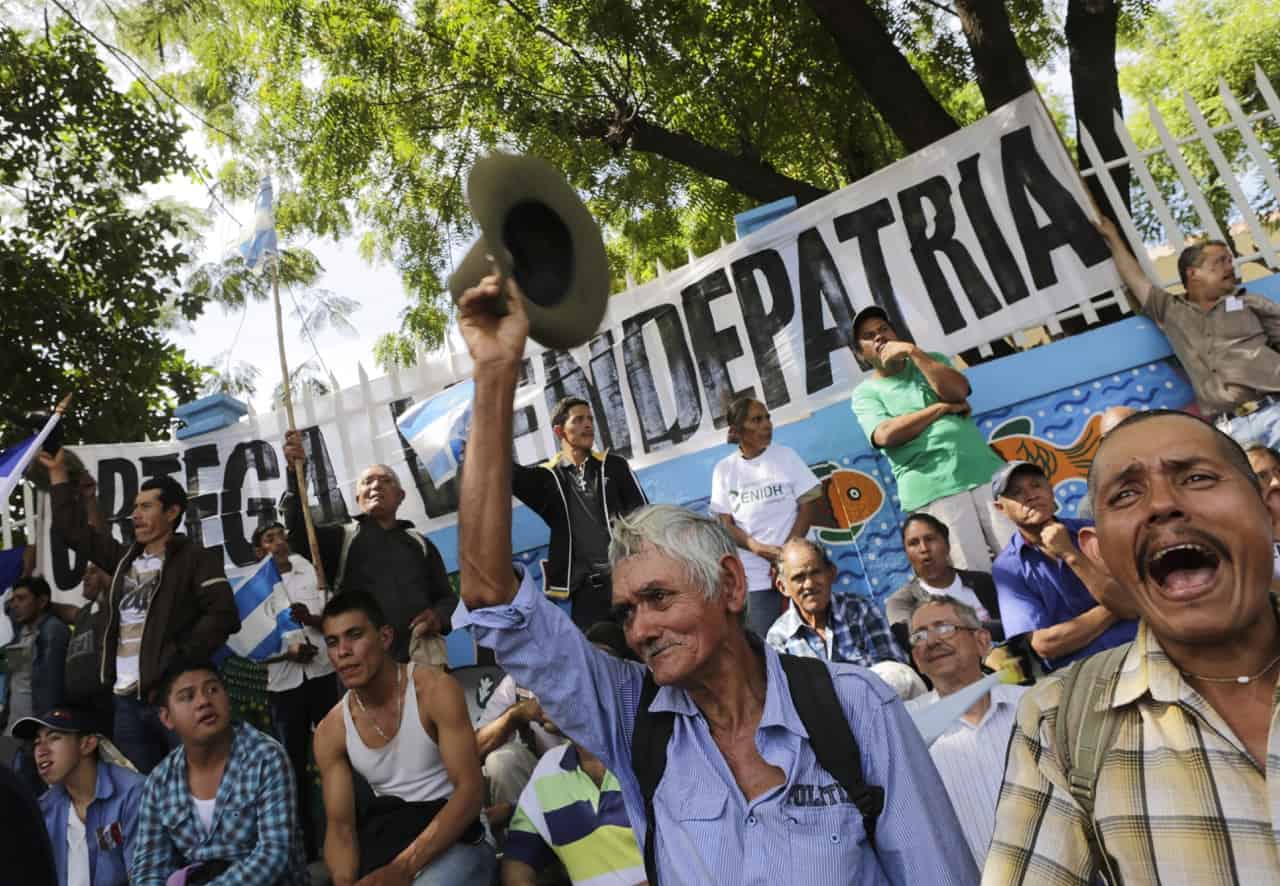“No to the canal,” “Get out, Chinese,” and “Ortega, sell out,” a chorus of demonstrators shouted Wednesday as thousands took to the streets of Managua to protest the construction of a mega-canal that threatens to expropriate land from small holders and damage Lake Cocibolca, the largest freshwater lake in Central America.
Demonstrators traveled to the Nicaraguan capital from across the country to denounce the $50 billion project as an environmental disaster and a loss of sovereignty to HK Nicaragua Development, the Chinese corporation running the Great Inter-Oceanic Canal project, which was granted rights over the canal for up to 100 years by President Daniel Ortega in 2013.
The 278-kilometer (172 mile) waterway is set to begin construction in Dec. 22, traveling from the mouth of the Brito river on the Pacific Coast, across Lake Cocibolca, and on to the Caribbean.
Marchers presented 60,000 signatures to Vilma Núñez, head of the Nicaraguan Center for Human Rights, in hopes of drawing international attention to their concerns, the newspaper La Prensa reported.
The canal could have an impact on an estimated 30,000 people living in communities along the proposed route.
“We don’t want them to come and stomp all over our land and our rights. How are these families going to survive? How are you going to survive in the city if we can’t produce the food for people to eat?” asked Porfirio García, from the Caribbean town of Nueva Guinea.
La Prensa and news magazine Confidencial reported that many organizers were unable to reach the protest in Managua because of police blockades. In the town of Rivas, where previous demonstrations against the canal flared earlier this year, protesters clashed with police and set fires on the road. Inhabitants of El Tule, Río San Juan reported that police blocked streets there as well.
Fernando Borge, spokesperson for the National Police, told Confidencial that he was unaware of any police obstructing egress from neighborhoods.
President Daniel Ortega has said the project will create enough work to help alleviate the poverty that affects more than half the population of this Central American country, one of the poorest in the Western Hemisphere. But environmentalists are worried, in particular about the effects of ship traffic on a lake that is along the path of the planned canal.
Related: Nicaragua canal survey off to rocky start marked by fear and mistrust






